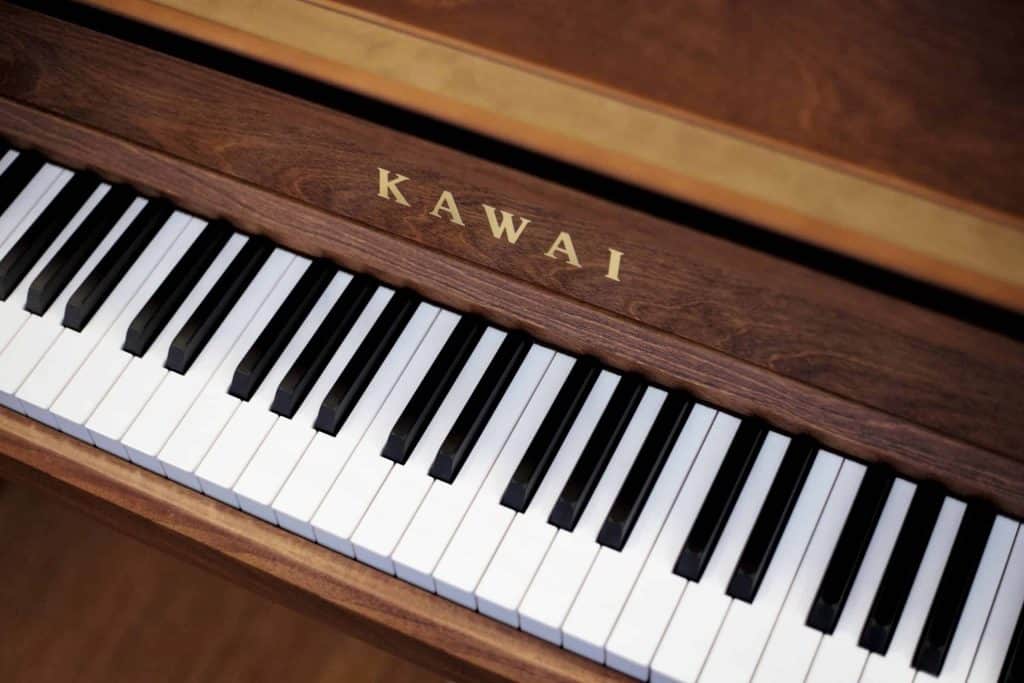
Kawai is a renowned piano brand that started in 1927. The company is known for their quality, innovation, and craftsmanship in the piano industry. Over the years, Kawai has consistently produced high-quality pianos, ranging from acoustic grand pianos to digital pianos. This has made them a popular choice for pianists around the world.
History of Kawai Pianos
Kawai was founded by Koichi Kawai in Hamamatsu, Japan, in 1927. Initially, the company produced upright pianos under the name Kawai Musical Instrument Research Laboratory. In the 1960s, Kawai expanded its production to include grand pianos The company then quickly gained a reputation for producing high-quality instruments.
Shigeru Kawai succeeded his father in 1955. Shigeru focused his efforts on making Kawai “the sound heard around the world”. Kawai began to meet the worldwide demand for pianos. This led to Kawai Australia being established in 1981.
Today, Kawai is one of the most recognised piano brands in the world. The company is known for its commitment to quality and innovation. Everyone from professional musicians to music schools used its pianos around the world.
Types of Kawai Pianos
Kawai produces a wide range of pianos, including digital pianos, upright pianos, stage pianos and acoustic grand pianos.
Kawai digital pianos are some of the most advanced digital pianos on the market. These instruments are designed to replicate the sound and feel of an acoustic piano. The Concert Artist (CA) series digital pianos are a staple in the Kawai catalogue. CA Series Pianos not only have all the benefits of a digital piano but also capture an acoustic piano’s authentic sound. They also offer a range of features, including harmonic imaging sound samples and an OLED graphic display.
Kawai upright pianos are also highly regarded, and they are known for their warm, rich tone and reliable performance. Upright pianos are designed with vertically strung strings to make the piano more compact. These pianos are a popular choice for homes, music studios, and small performance venues.
Kawai has gained a reputation for producing some of the best grand pianos in the world. Kawai grand pianos are known for their exceptional tonal clarity, responsive touch, and outstanding durability. The Shigeru Kawai grand piano series was named after Shigeru Kawai because of his pursuit to build Japan’s finest grand pianos.
Features of Kawai Pianos
Kawai pianos are known for their exceptional build quality and innovative features. Here are some of the features you can expect from Kawai pianos:
- Exceptional Sound Quality: Kawai pianos are renowned for their rich, warm tone and clarity. The company uses high-quality materials and employs skilled craftsmen to ensure that each piano produces a beautiful, rich sound.
- Responsive Touch: Kawai pianos are known to have great key action and responsive touch. Whether you are playing a grand piano or an upright piano, you can expect a natural, responsive touch that feels like the real thing. Even their digital pianos are designed to have the touch and feel of an acoustic piano.
- Innovative Design: Kawai is committed to innovation, and the company is constantly developing new technology to improve its piano’s performance and functionality. For example, Kawai has developed the Millennium III action, which provides a smooth, responsive playing experience.
- Durability: Kawai pianos are built to last, and they are known for their exceptional durability. Whether you are a professional musician or a student, you can expect a Kawai piano to last for many years.
Looking to Buy a Kawai Piano?
Kawai pianos are some of the best pianos on the market. If you are looking for a high-quality piano that will provide you with years of enjoyment, a Kawai piano is definitely worth considering. Snadens Pianos is Western Australia’s Kawai Premium Selection Centre and exclusive dealer for Kawai upright, grand and Shigeru Kawai grand pianos. Visit the Snadens Pianos showroom in Nedlands to see our range of Kawai Pianos. We can assist you in finding the best piano to suit your needs.

